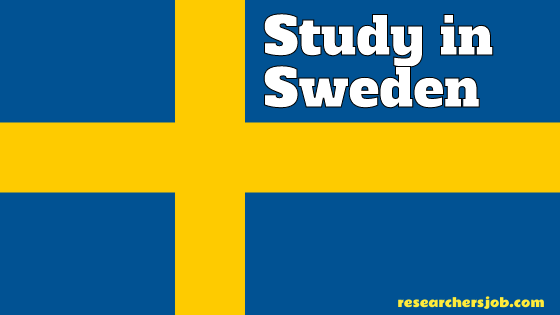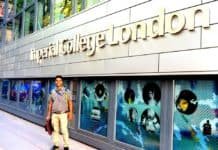PhD Student in Multimodal Machine Learning: Uppsala University is offering a fully funded PhD position at the Department of Information Technology, specializing in the development of novel machine learning methods for multimodal data in precision breast cancer diagnostics. Supported by Sweden’s largest research program, WASP (Wallenberg AI, Autonomous Systems and Software Program), this interdisciplinary project focuses on cutting-edge research to improve healthcare outcomes. The position provides an opportunity to collaborate with international experts in machine learning, biomedical systems, and clinical applications, with access to a unique dataset of over 10,000 matched multimodal patient profiles.
PhD Student in Multimodal Machine Learning for Precision Medicine
Designation
PhD Student in Multimodal Machine Learning for Precision Medicine
Details
| Category | Details |
|---|---|
| Research Area | Multimodal Machine Learning, Breast Cancer Diagnostics, Deep Learning, Image Analysis, Data Assimilation, Precision Medicine |
| Location | Uppsala University, Uppsala, Sweden |
| Type of Employment | Full-time, Temporary Position |
| Duration | Starting January 12, 2026, or as agreed |
| Pay | Fixed salary |
| Supported By | Wallenberg AI, Autonomous Systems and Software Program (WASP) |
Eligibility/Qualifications
Applicants must meet the following criteria:
- Educational Background:
- Master’s degree in Engineering Physics, Electrical Engineering, Machine Learning, Data Science, Computer Vision, Computer Science, Applied Mathematics, or related fields.
- Alternatively, have completed at least 240 credits of higher education including 60 credits at Master’s level with a thesis worth 15 credits.
- Skills and Experience:
- Strong mathematical foundation and interest in developing novel machine learning methods.
- High proficiency in programming, preferably in Python.
- Familiarity with scientific computing, optimization, statistical machine learning, deep learning, computer vision, and software engineering is an advantage.
- Language Proficiency: Proficiency in both written and oral English.
Description
The selected PhD candidate will primarily engage in graduate education and research for the development of advanced multimodal machine learning methodologies. The project focuses on combining large-scale image data, molecular profiling, and clinical data to improve breast cancer diagnostics.
The work includes:
- Researching deep learning-based image analysis and data assimilation methods.
- Updating model trajectories using partial, longitudinal data.
- Collaborating with clinical experts to uncover the mechanisms underlying breast cancer and applying these insights to improve precision diagnostics and patient outcomes.
The doctoral student will join the Division of Systems and Control at the Department of Information Technology, one of Uppsala University’s leading research and academic centers. Additional responsibilities may include up to 20% teaching or administrative duties.
How to Apply
Candidates must submit their application through Uppsala University’s recruitment system. The application should include:
- Cover Letter (max 2 pages): Explain your motivation for applying, your suitability for the role, and earliest employment start date.
- Curriculum Vitae (CV).
- Grade Documents: Transcripts in Swedish or English.
- Thesis/Publications/Relevant Technical Work: Submit your Master’s thesis (completed or draft), scientific texts, or other relevant work.
- References: Contact details for two references (names, emails, and telephone numbers). Up to two recommendation letters may also be included.
For inquiries, contact:
- Jens Sjölund: jens.sjolund@it.uu.se
- Dave Zachariah: dave.zachariah@it.uu.se
Last Date to Apply
October 15, 2025
About Uppsala University
Uppsala University is a globally recognized institution known for its excellence in research and education, striving to create impact in society through sustainable and innovative solutions. Employing over 7,600 staff and serving 53,000 students annually, it offers a rich and dynamic academic environment.









